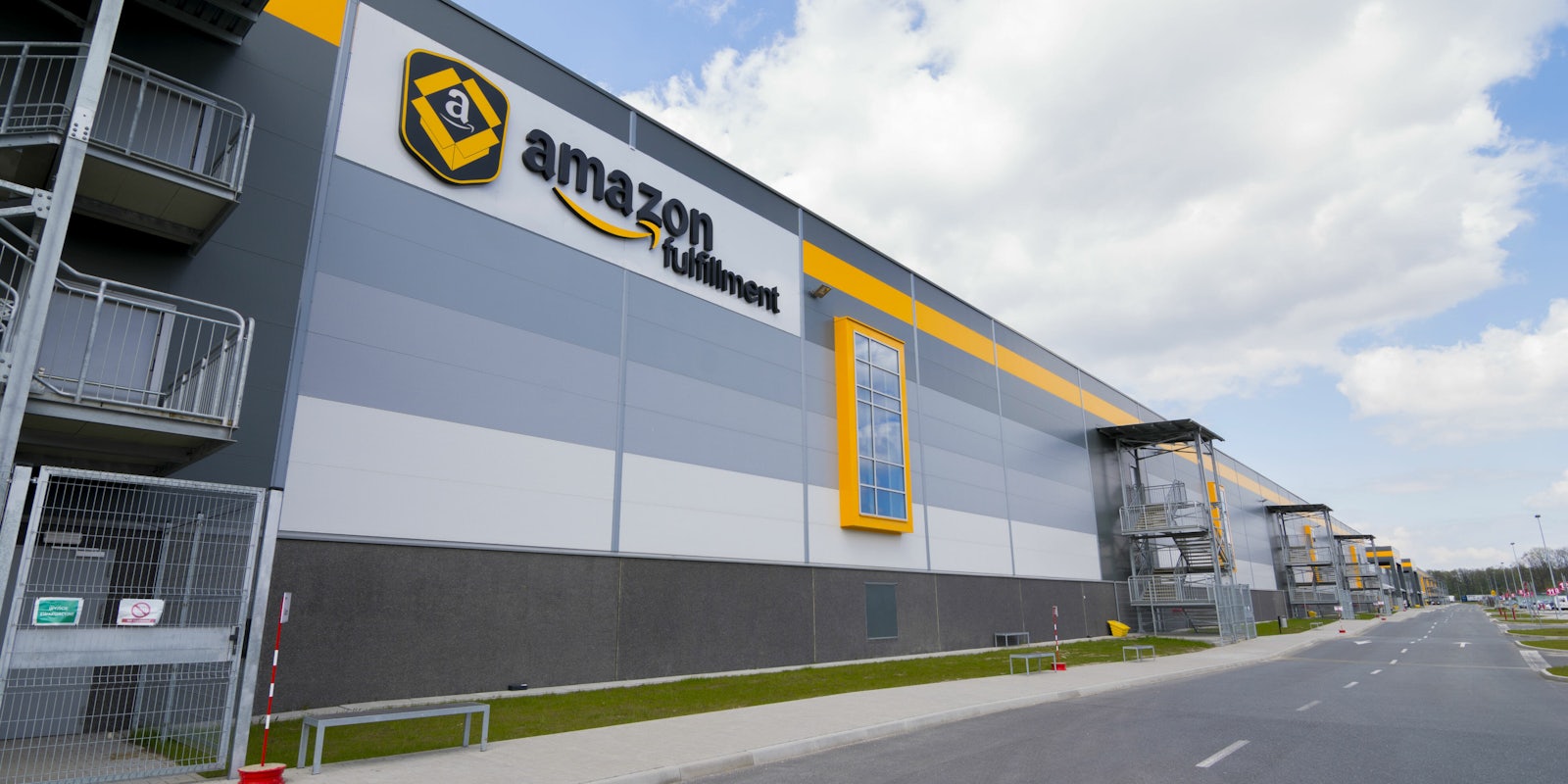A disturbing new report describes how Amazon factory workers pee in bottles for fear of getting in trouble for taking bathroom breaks. Fulfillment workers picking and sorting orders reportedly use a “toilet bottle” system because Amazon’s strict warehouse rules put immense pressure on anyone who wastes a moment of time, the Sun reports.
The revelation comes from James Bloodworth, an author who went undercover at a warehouse in Staffordshire, U.K for a book on low wages in Britain. He says workers on the fourth floor had to navigate down three flights in a 700,000 square-foot building—a quarter-of-a-mile walk—to reach the nearest restroom.
“For those of us who worked on the top floor, the closest toilets were down four flights of stairs,” Bloodworth told the Sun. “People just peed in bottles because they lived in fear of being disciplined over ‘idle time’ and losing their jobs just because they needed the loo.”
Bloodworth says the experience was like being in a prison where employees are patted down if they’re suspected of having stolen products. “The security guards at Amazon were endowed with a great deal of power, which included the right to search your car if they suspected you of stealing something,” he said.
His testimony echoes a survey of 100 Amazon employees published on Sunday by worker’s rights group Organise. It found nearly three-quarters of employees avoid using the toilet for fear of missing a performance mark. Additionally, 55 percent of those surveyed said they were depressed and 81 percent said they would not apply for a job there again.
“[Targets] have increased dramatically. I do not drink water because I do not have time to go to the toilet,” an anonymous worker was quoted in the survey.
Another said, “For picking, the target is around 100 units per hour which means we have to pick 100 units within 60 minutes from anywhere across one floor of the Fulfilment Centre. This for normal days. And during peak time its 120 to 140 units per hour, which is near impossible.”
Amazon disputed the claims in a statement to the Sun, citing job rankings lists.
“Amazon provides a safe and positive workplace for thousands of people across the UK with competitive pay and benefits from day one,” a spokesperson said. “We have a focus on ensuring we provide a great environment for all our employees and last month Amazon was named by LinkedIn as the 7th most sought after place to work in the UK and ranked first place in the US.”
The intolerable working conditions at Amazon warehouses have been well documented. A previous report by Mirror detailed how Amazon enforces timed toilet breaks. The company has also been accused of pressuring its employees to work long hours doing rigorous, back-breaking work. Amazon fulfillment workers around the world report working in 100 degrees without air conditioning and being punished for health conditions.
In one case, a woman with breast cancer was put on a “performance improvement plan” because her condition had affected her work. Other workers, even engineers, supposedly take their work with them to the bathroom. Most of the complaints boil down to Amazon’s cut-throat efficiency, tracking workers to ensure no time is wasted.
Update 11:21am CT, April 16: An Amazon spokesperson told the Daily Dot that the company has not yet determined the legitimacy of the Organise survey and therefore doesn’t consider the results an “accurate portrayal of activities.”
“We have not been provided with confirmation that the people who completed the survey worked at Amazon and we don’t recognize these allegations as an accurate portrayal of activities in our buildings. Amazon also offers public tours of its fulfilment centres so customers can see first-hand what happens after they click “buy” on Amazon.”
They continued, “Amazon ensures all of its associates have easy access to toilet facilities which are just a short walk from where they are working.”


